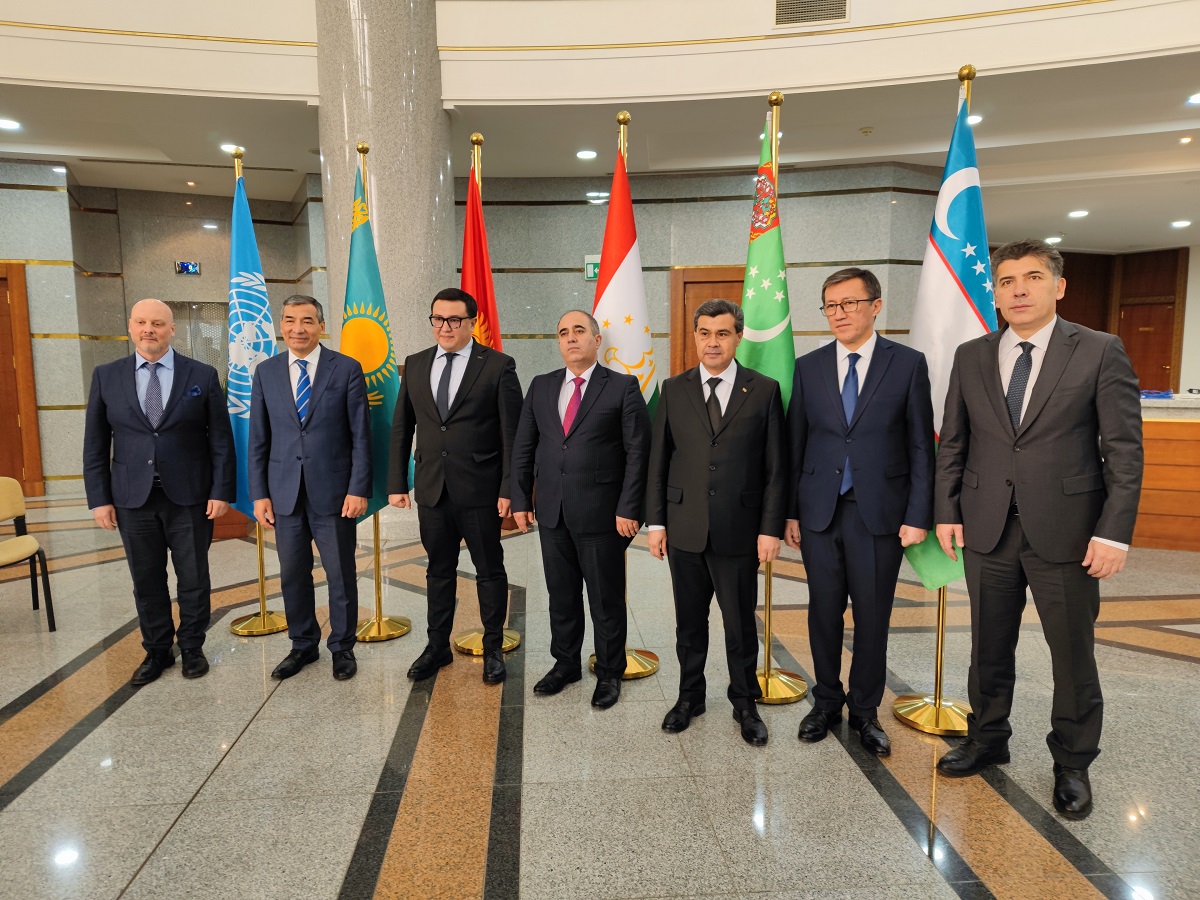
The V Central Asian Expert Forum was held in Ashgabat on Saturday, bringing together the heads and leading specialists of the strategic research centers of five countries of the region and not only them.
The community of analysts, which has repeatedly discussed pressing issues online in bilateral and multilateral formats over the past three years, this time gathered for a face-to-face meeting in the Turkmen capital on the eve of the International Day of Neutrality. So this event combines both the festive context associated with the 27th anniversary of Turkmenistan’s adoption of the status of neutrality, and the expert process of studying the geopolitical and geo-economic conjuncture in search of coordinated, consolidated actions in response to the challenges and threats of the time.
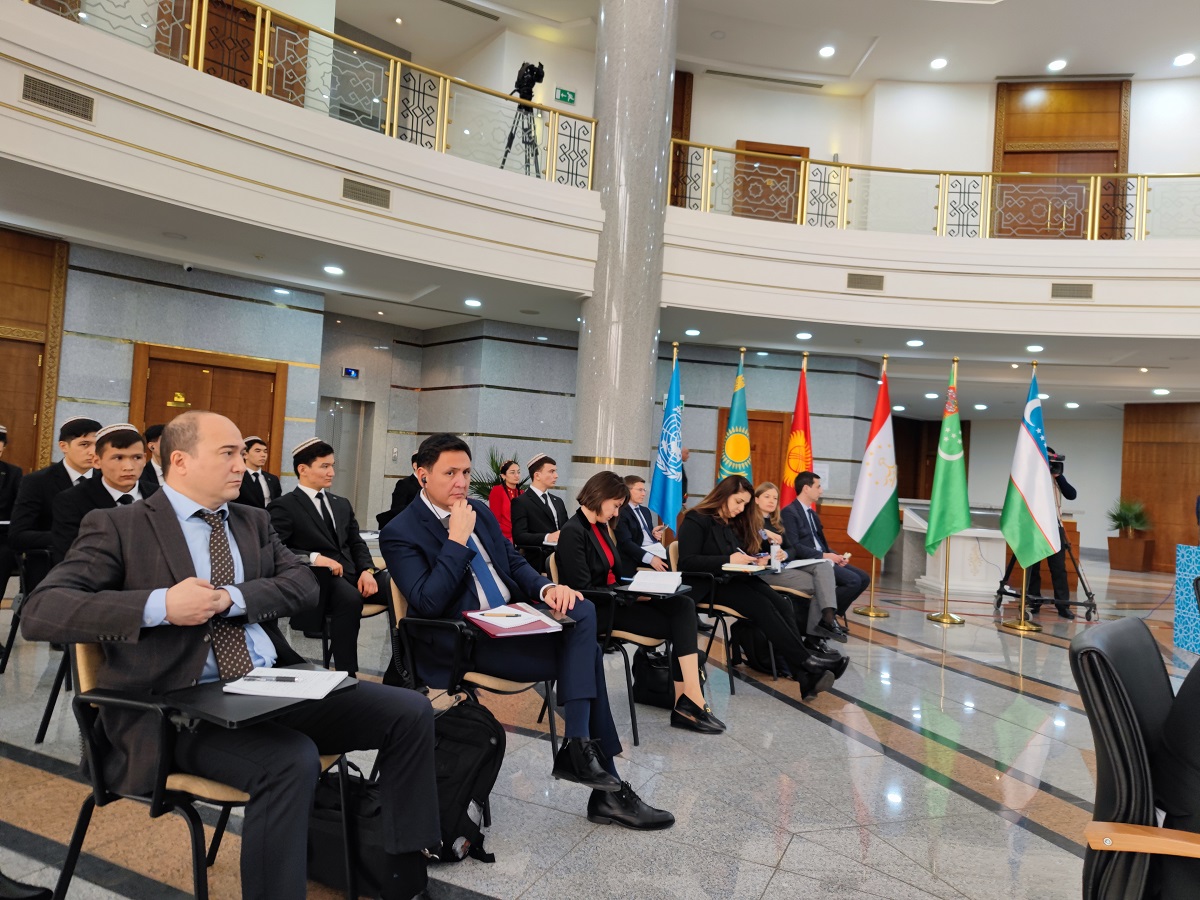
The title of the forum, which is quite lengthy—as is frequently the case among scientists—but which specifies the range of urgent priority problems on which delegates want to speak and hear the opinions of colleagues from other nations, reflects the event’s vast agenda. “Topical aspects of regional cooperation on climate change, water use, food security and information and communication technologies in the Central Asian region” – this is the range of complex topics covered by the current meeting.
Its venue was the Institute of International Relations of the Ministry of Foreign Affairs of Turkmenistan, whose Rector Jumamurad Gurbangeldiyev warmly welcomed the guests and the participants of the forum, at the same time congratulating the Special Representative of the UN Secretary General, the head of the Regional Center for Preventive Diplomacy for Central Asia (RCPCA) Natalia Gherman with the recent new appointment to a senior position in the UN Counter-Terrorism Committee and giving her the floor.
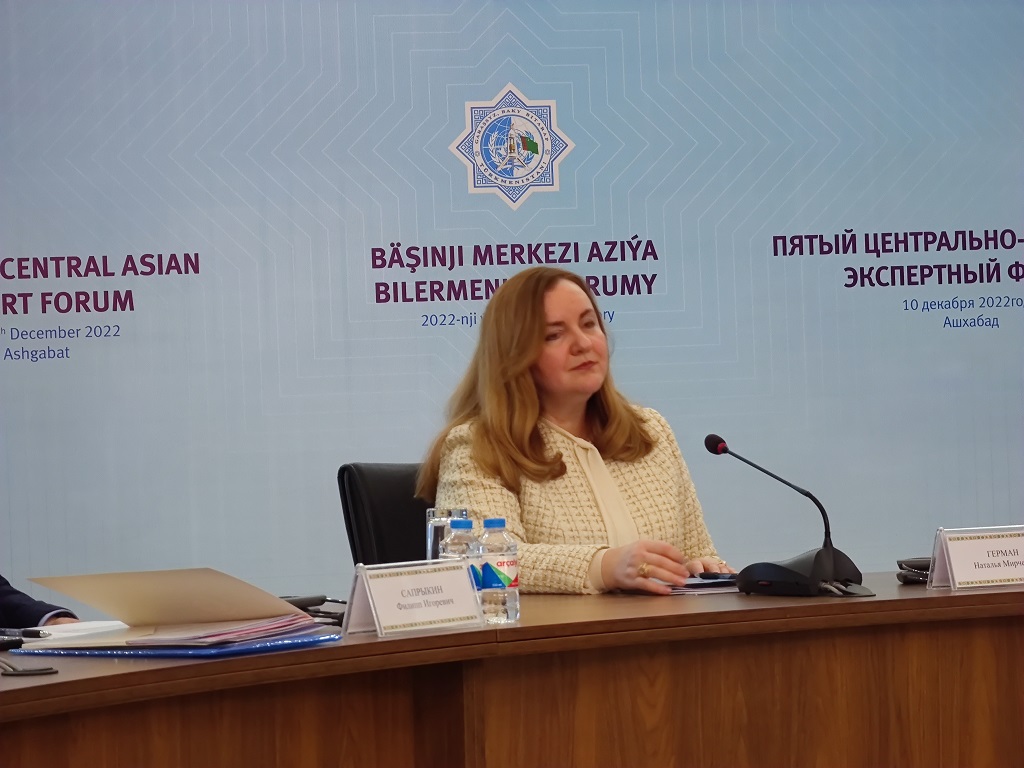
Natalia German recalled that by establishing close ties with the institutes of strategic studies in the countries of the region, the UNRCCA contributed to the formation of the Central Asian Expert Forum as a platform for discussions and the promotion of preventive diplomacy in Central Asia. The first meeting of the forum was held in Uzbekistan in 2018, the second in Kazakhstan. Two subsequent meetings were organized online in 2020, where issues of regional cooperation in the context of the pandemic were discussed.
“It is gratifying that the results of our activities have been duly reflected in the final documents of the Consultative Meetings of the leaders of the Central Asian states,” the Special Representative of the UN Secretary General said, noting that the fifth expert forum is taking place against the backdrop of active rapprochement of the countries of the region and deepening cooperation between them, especially given the complicated international situation.
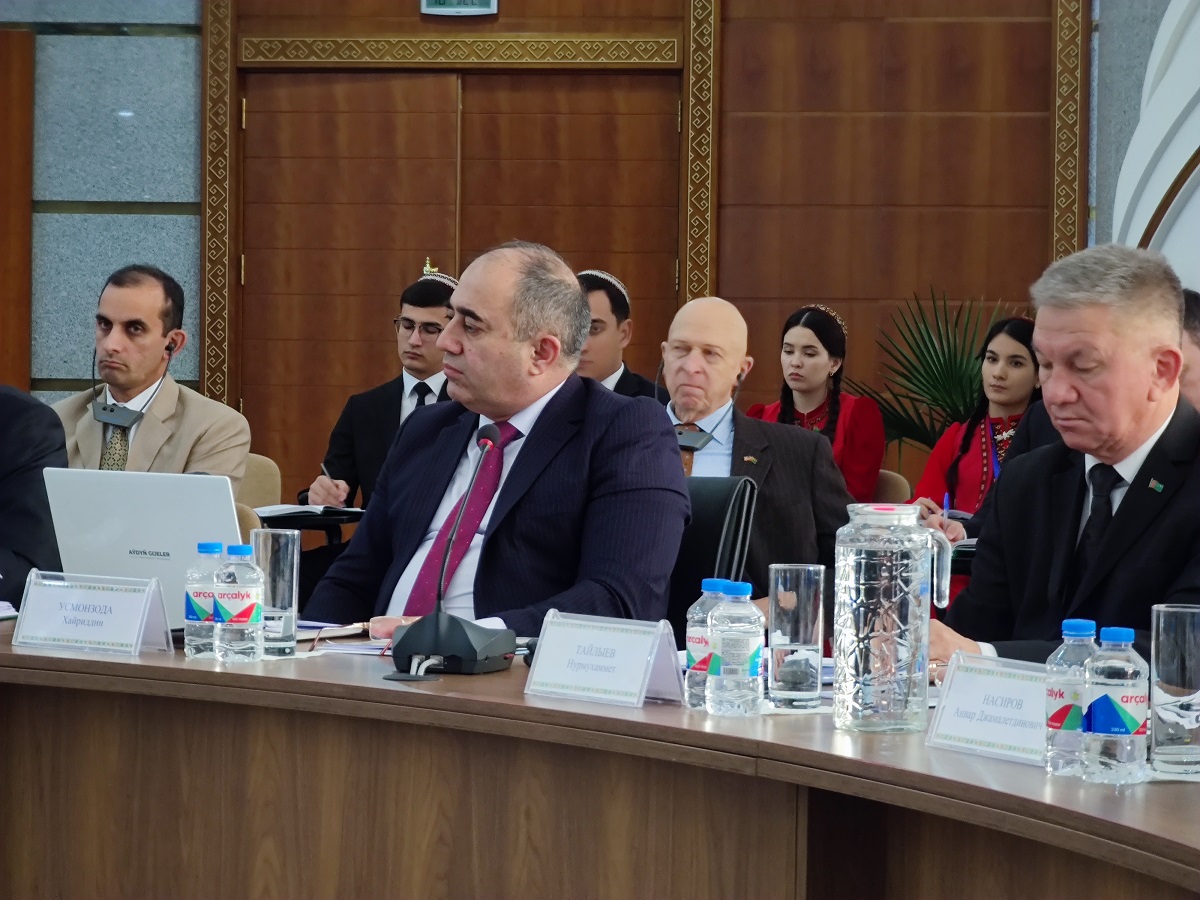
Without particularly lingering on the opening speeches, but paying tribute to them as a necessary component of diplomatic and congress etiquette, the forum delegates moved on to the first session devoted to cooperation in combating climate change in Central Asia and water interaction in the Aral Sea basin.
Scientists, including doctors of political and philosophical sciences, candidates of biological and technical sciences, had something to say to each other in addition to statements, declarations and appeals of a general nature. The conversation was with a practical eye, informative on real facts, figures in their long-term dynamics and current indicators, scientifically based assessments and analytical forecasts, sound proposals and noteworthy scenarios for solving problems in this area.
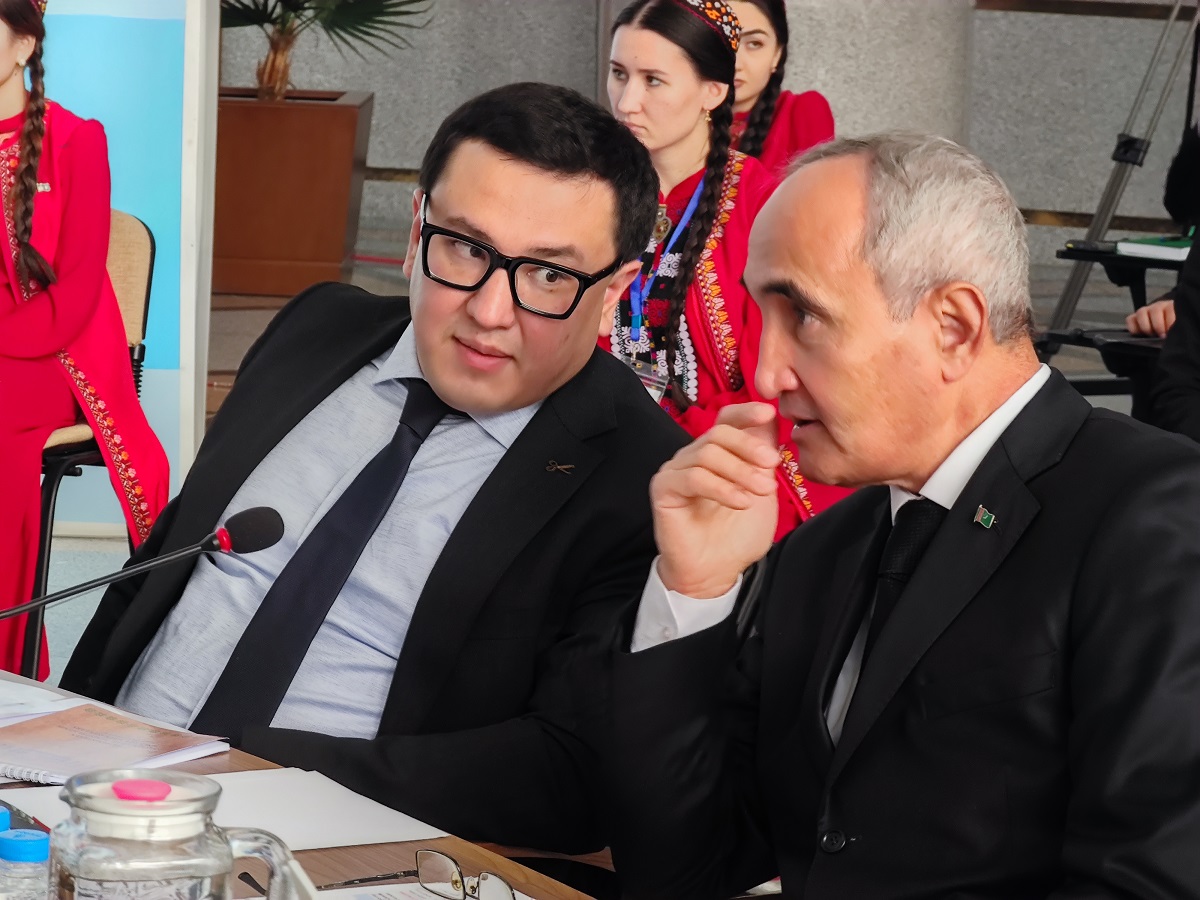
The emphasis was on building a low-carbon economy, introducing resource-saving and “green” technologies, and developing renewable energy sources.
Another session was devoted to the issues of ensuring food security in Central Asia. This extesive, vital topic, which is of a global nature, was considered on the example of the countries of the region in economic, sociological, agricultural, environmental and other perspectives, representing all together a complex cross-section of strategic research.
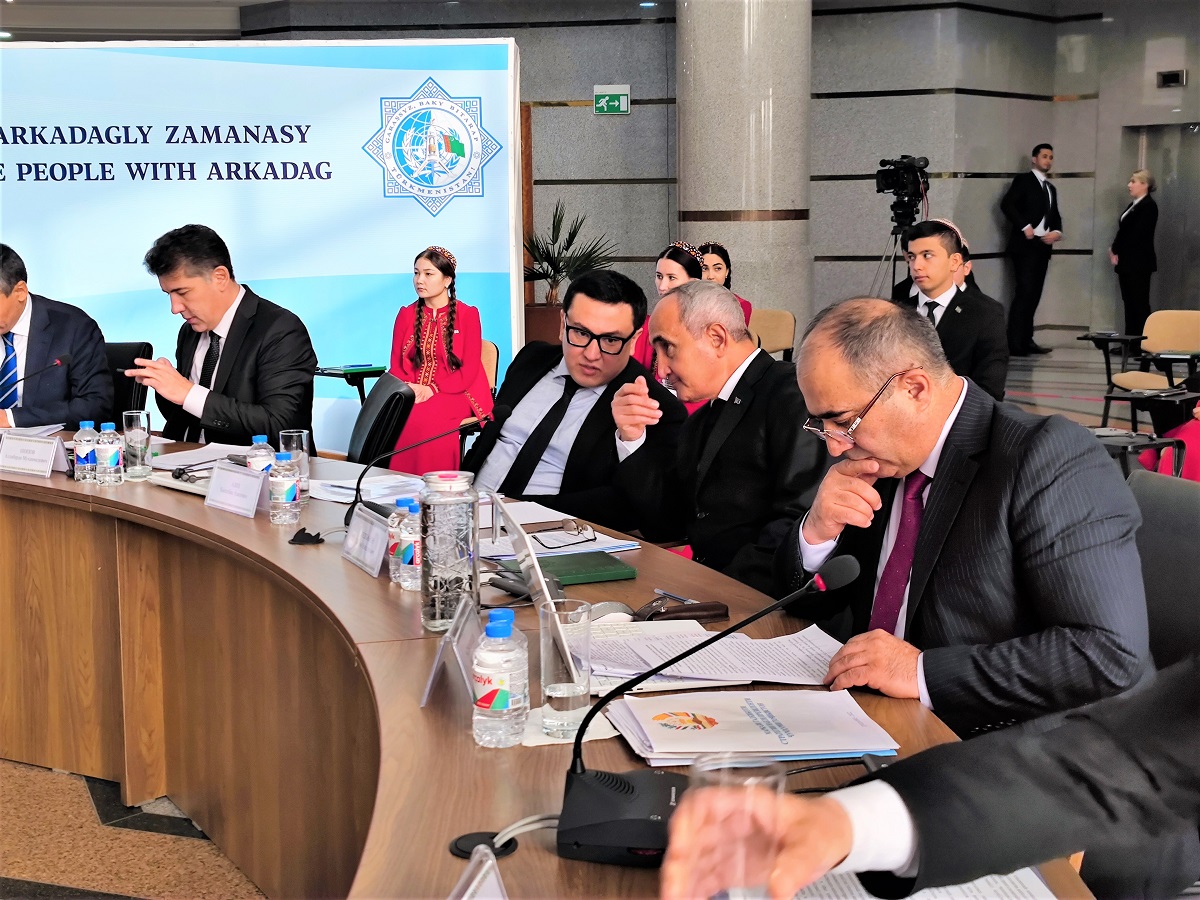
The general conclusion that can be drawn from the speakers’ reports is that in the long term, the development of the processing industry should be carried out by attracting investments, using new equipment and modern production technologies, increasing the competitiveness of products, mastering the market management system and actively entering world markets.
And the third session dealt with such a relatively new but serious issue as security in the field of information and communication technologies. Recently, cybersecurity has become an independent component of national security.
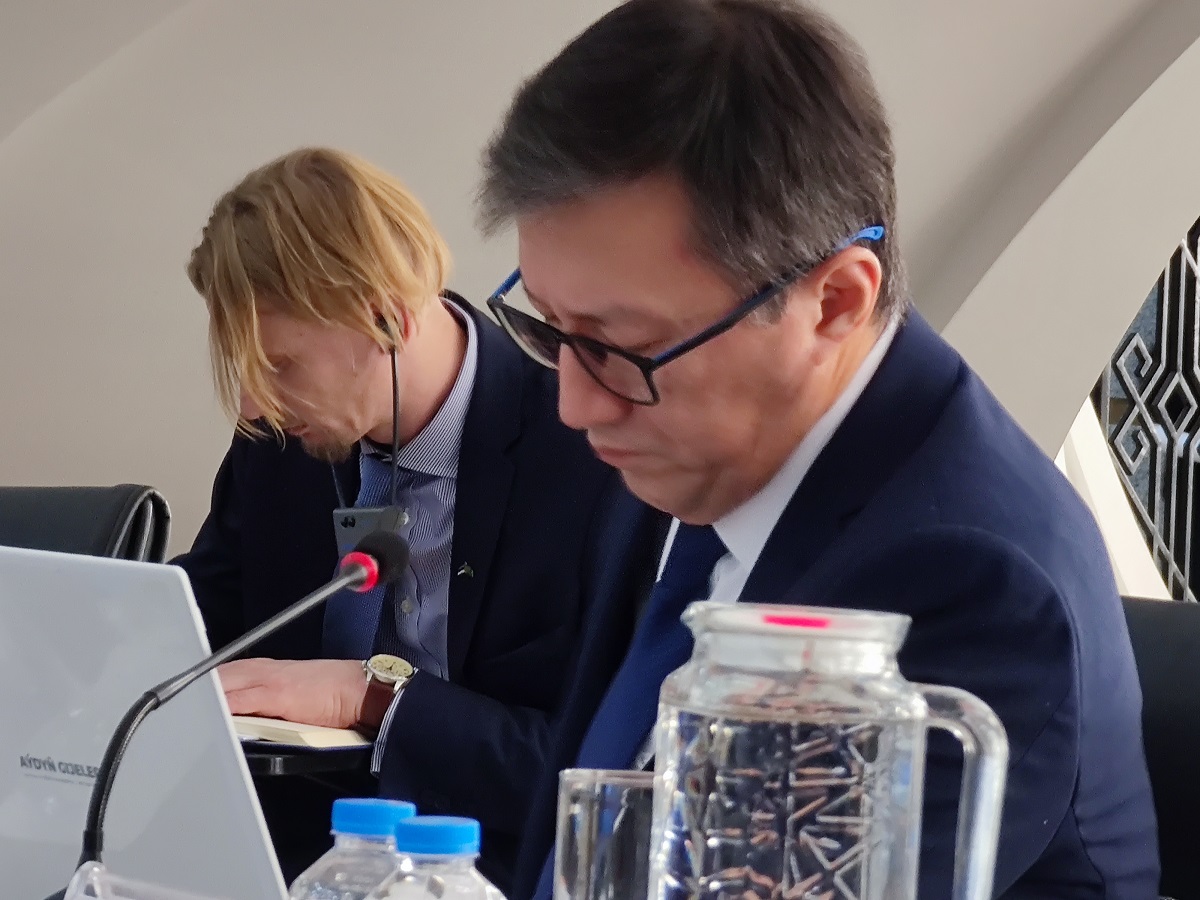
Society is just beginning to realize the importance of this issue, while analysts have been sounding the alarm for a long time, because there are practically no state borders for a network war in the conditions of the formation of an information society and a digital economy. The old truth says whoever owns the information owns the world. In this case, we are talking about ICTs, which are as necessary as they are unsafe. Like a knife in the hands of a surgeon or a robber.
The discussion of this topic brought together not only experts from the institutes of strategic studies, but also representatives of law enforcement agencies, journalists and sociologists. History reminds us that many scientific and technological advancements are used for purposes other than human welfare. The current circumstances further emphasize the need for States to coordinate their efforts in order to actively develop and employ ICT in the benefit of countries’ socioeconomic development and security.
It should be noted that all the “three pillars” of the security of the Central Asian region put on the agenda of the expert forum – environmental, food and digital security – provide for deep integration of neighboring countries for adequate and effective responses to these common challenges.
On Sunday, the forum participants will take part in the International Conference “Dialogue – a Guarantee of Peace” dedicated to the International Day of Neutrality and the 15th anniversary of the UN Regional Center for Preventive Diplomacy.
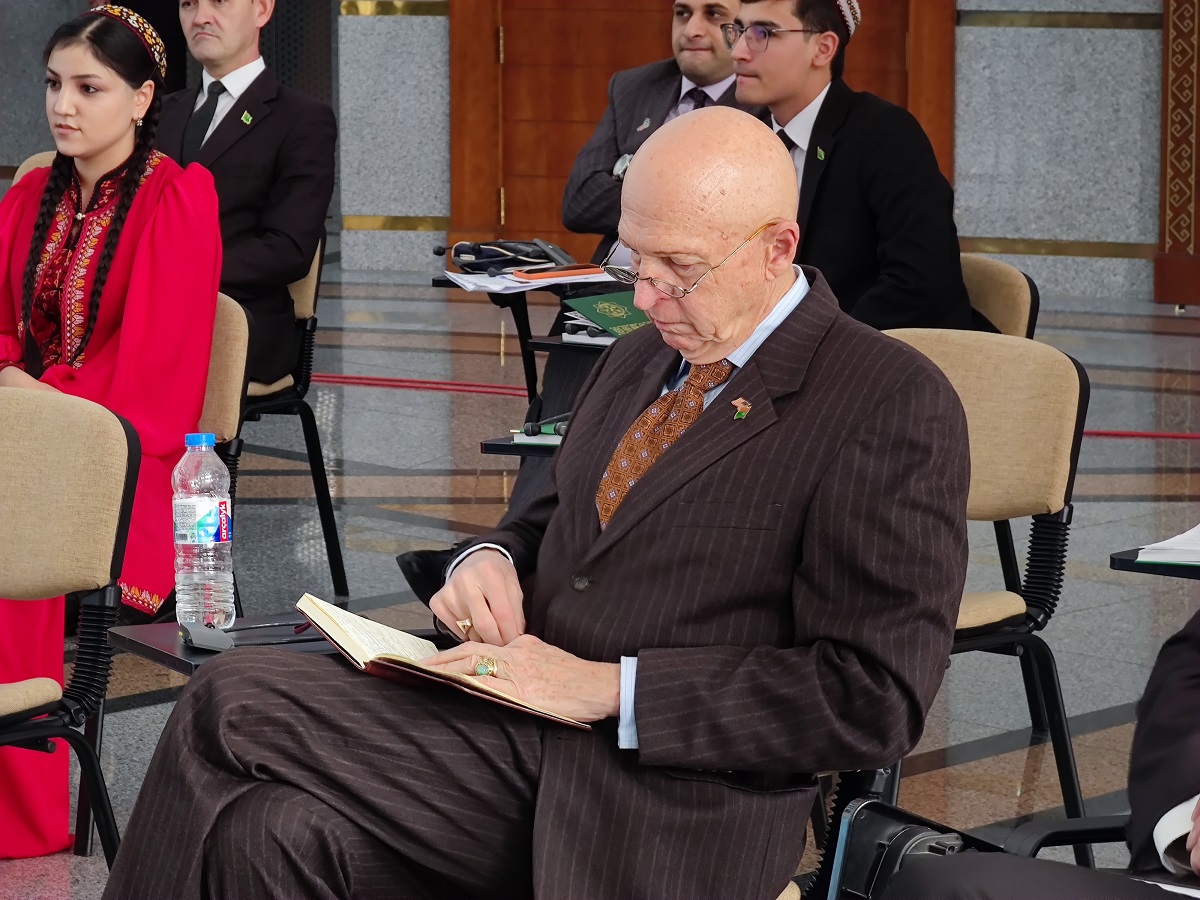
The 5th Central Asian Expert Forum was attended by heads and representatives of the Center for Strategic Studies of the International Relations Institute of the Ministry of Foreign Affairs of Turkmenistan, the Institute for Strategic Studies under the President of the Republic of Kazakhstan, the National Institute for Strategic Studies under the President of the Kyrgyz Republic, the Center for Strategic Studies under the President of the Republic of Tajikistan, the Institute for Strategic and Interregional Studies under the President of the Republic of Uzbekistan, the International Institute of Central Asia, the Institute of the Caspian Sea and others.
/// Originally published by Orient.tm in Russian on 10 December 2022 at this link — https://orient.tm/ru/post/43052/eksperty-centralnoj-azii-obsudili-v-ashhabade-vyzovy-stoyashchie-pered-regionom
This English language translation prepared by nCa, 12 December 2022